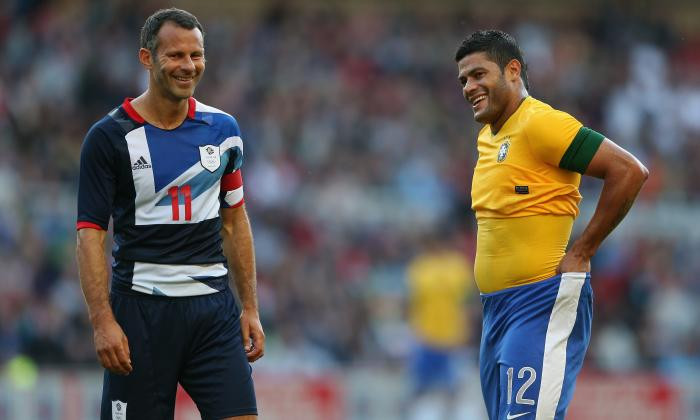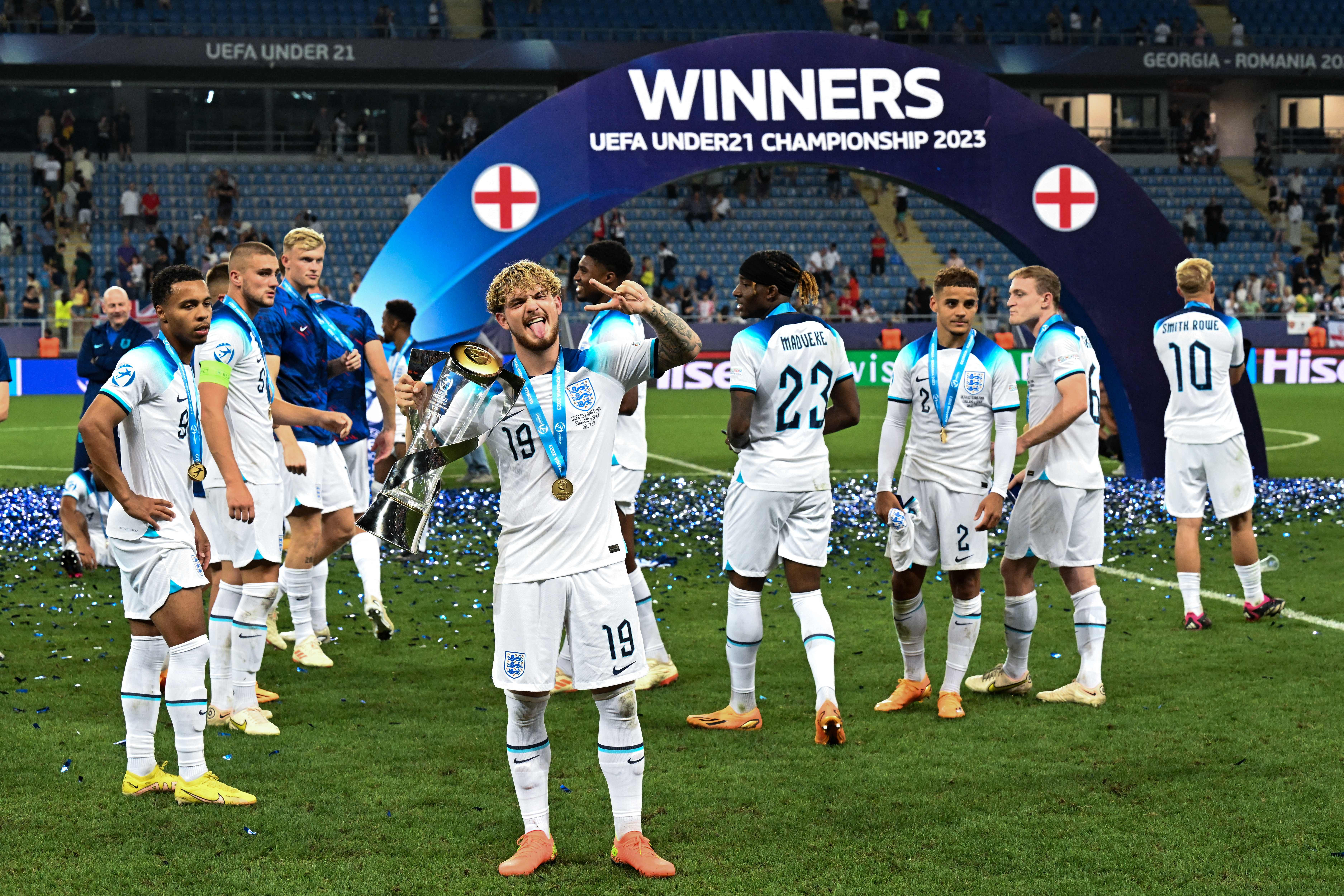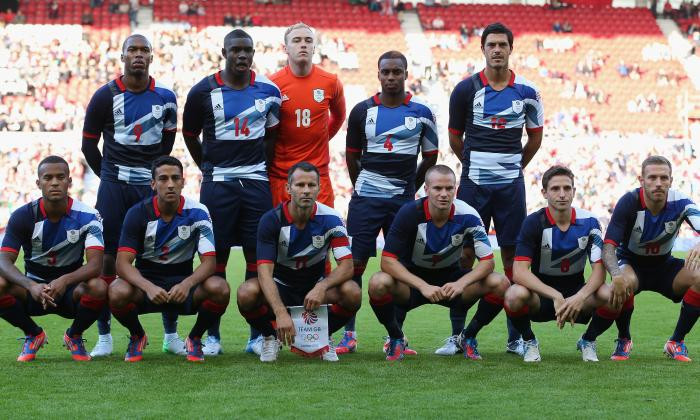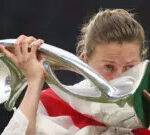Are you wondering why you won’t see an Olympic English Football Team competing? This article dives deep into the complex reasons behind Team GB’s absence from both men’s and women’s football at the Olympics, exploring the historical context, political sensitivities, and qualification processes involved. For clear and reliable answers, stick with CAUHOI2025.UK.COM, your go-to resource for comprehensive explanations. Discover the unique structure of UK football representation and its impact on Olympic participation.
1. The Unique Structure of UK Football and the Olympics
Unlike the FIFA World Cup or the UEFA European Championship, the Olympic Games are governed by the International Olympic Committee (IOC). This difference in governance is fundamental to understanding why there isn’t a straightforward “England” team at the Olympics. In FIFA/UEFA competitions, each of the four home nations of the UK – England, Wales, Scotland, and Northern Ireland – has its own Football Association (FA) and competes independently. However, within the IOC, these home nations are registered as a single entity known as Great Britain (Team GB). This means that for most Olympic sports, athletes from all four nations compete together under the Team GB banner.
This arrangement works well for many sports, but it becomes complicated in football. The core issue is the historical concern among Scotland, Wales, and Northern Ireland that fielding a combined Team GB football team could jeopardize their independence and standing within FIFA and UEFA. These nations fear that a unified Olympic team could potentially dilute their individual identities and reduce their influence in international football competitions.
1.1. Historical Participation and the Road to the 1970s Ban
Great Britain had a strong presence in Olympic football during the early 20th century, even claiming gold medals at the Paris 1900 (unofficial), London 1908, and Stockholm 1912 Games. However, as the international football landscape evolved, the concerns of the other home nations grew.
[ Manchester United legend Ryan Giggs captained Team GB at London 2012
Manchester United legend Ryan Giggs captained Team GB at London 2012
Manchester United legend Ryan Giggs captained Team GB at London 2012
By the 1970s, these concerns led to an unofficial agreement to cease participation in Olympic men’s football. The fear was that a permanent Team GB presence could eventually lead to pressure to merge the individual FAs or to give Team GB preferential treatment in FIFA competitions.
2. The Exception: London 2012 and Its Legacy
The only major exception to this decades-long absence was the London 2012 Olympics, hosted on home soil. The prospect of a home Olympics created enough momentum to overcome the usual objections, and a men’s Team GB was formed. However, even this one-off participation was fraught with political maneuvering.
2.1. Compromises and Composition of the 2012 Squad
To appease the concerns of the Scottish, Welsh, and Northern Irish FAs, the Football Association ( governing body for English football) had to make several concessions. These included assurances that participation in the 2012 Olympics would not set a precedent for future Games and that the individual status of the home nations within FIFA would be protected. The final squad selection also reflected these sensitivities. The team comprised 13 English players and 5 Welsh players, with no representatives from Scotland or Northern Ireland. This composition was a direct result of the political negotiations and the desire to avoid further controversy.
2.2. Performance and the Aftermath
Despite the hype and home advantage, Team GB’s journey in the London 2012 tournament ended in disappointment. They were knocked out in the quarter-finals by South Korea after a penalty shootout. While the tournament provided a memorable experience for the players and fans involved, it did little to change the underlying dynamics that prevent Team GB from regularly competing in Olympic football. Since London 2012, no similar agreement has been reached for subsequent Olympic Games, meaning England’s victory in the 2023 UEFA Under-21 Championship did not automatically secure a place at the Paris Olympics.
3. The Women’s Team GB: A Slightly Different Story
The situation for the women’s Team GB football team is somewhat different. While they also faced challenges in forming a unified team, they have had more success in recent years.
3.1. London 2012 and Beyond
Like the men’s team, a women’s Team GB competed at London 2012. However, unlike the men, they have been able to qualify for subsequent Games. Although an agreement was not reached for the Rio 2016 Olympics, the women’s team was revived for the Tokyo 2020 Olympics.
3.2. Qualification Process and the Lionesses’ Role
The process for the women’s team to qualify involves the highest-ranked women’s team among the four home nations attempting to secure one of the European qualification spots. If successful, that nation’s place is then handed over to Team GB.
For the Paris 2024 Olympics, that responsibility fell to England. However, the Lionesses, despite their strong performances in recent years, failed to secure a spot in their Nations League group, meaning there will be no women’s Team GB football team at the Paris Olympics.
[ This could have been the triumph that booked Britain
This could have been the triumph that booked Britain
This could have been the triumph that booked Britain’s place at the Olympics Credit: Getty
4. UEFA Under-21 Euros and Olympic Qualification: A Disconnect
The 2023 UEFA Under-21 European Championship, which England won, served as the European qualification tournament for the Paris 2024 Olympics. However, due to the ongoing issues surrounding Team GB, England’s victory did not automatically translate into an Olympic spot. Instead, Israel and Ukraine qualified alongside Spain, who were runners-up in the tournament. This disconnect highlights the complex and often frustrating situation for talented young English players who may miss out on the opportunity to compete at the Olympics due to the unique political landscape of UK football.
4.1. The Future of Olympic Football for Team GB
The future of Olympic football for Team GB remains uncertain. Overcoming the historical concerns and political sensitivities surrounding the team’s formation will require ongoing dialogue and compromise between the four home nations. While the London 2012 experience demonstrated the potential benefits of a unified team, it also highlighted the challenges involved in reaching an agreement that satisfies all parties. For now, fans in the United Kingdom will have to continue supporting their individual home nations in FIFA and UEFA competitions, while the Olympic stage remains largely out of reach.
5. The Bigger Picture: National Identity vs. Olympic Spirit
The debate over Team GB’s participation in Olympic football touches on deeper questions of national identity and the spirit of the Olympic Games.
5.1. Balancing National Interests and Collaboration
On one hand, the desire of Scotland, Wales, and Northern Ireland to maintain their independent footballing identities is understandable. Football is deeply ingrained in the culture and national pride of each of these nations, and there is a legitimate fear that a permanent Team GB presence could undermine their unique status.
5.2. The Olympic Ideal
On the other hand, the Olympic Games are meant to be a celebration of international collaboration and sporting excellence. The absence of a Team GB football team means that talented players from the UK are denied the opportunity to compete on the world’s biggest stage and to represent their country as part of a unified team.
Finding a balance between these competing interests is a challenge that requires creative solutions and a willingness to compromise. Perhaps a more flexible approach to team selection, or a system that guarantees the representation of all four home nations, could help to pave the way for a more regular Team GB presence in Olympic football.
6. Alternative Scenarios and Potential Solutions
While the current situation seems entrenched, there are potential alternative scenarios that could lead to a change in the future.
6.1. A Shift in Attitudes
One possibility is that attitudes within the Scottish, Welsh, and Northern Irish FAs could gradually shift over time. As the benefits of Olympic participation become more apparent, and as safeguards are put in place to protect the independence of the individual nations, there may be a greater willingness to embrace the idea of a permanent Team GB football team.
6.2. A Change in FIFA Rules
Another potential catalyst for change could be a modification of FIFA rules regarding the participation of combined teams in international competitions. If FIFA were to introduce a framework that explicitly allows for combined teams without jeopardizing the status of individual member associations, it could remove a major obstacle to Team GB’s participation in the Olympics.
6.3. Fan Pressure
Finally, public opinion could also play a role. If there is a strong and sustained demand from fans across the UK for a Team GB football team, it could put pressure on the FAs to find a way to make it happen.
[ Team GB are not playing Olympic football this summer
Team GB are not playing Olympic football this summer
Team GB are not playing Olympic football this summer
7. Impact on English Football and Player Development
The absence of a regular Olympic outlet for English footballers has implications for player development and international exposure.
7.1. Missed Opportunities
The Olympic Games provide a unique platform for young players to showcase their talents on a global stage. The absence of a Team GB football team means that many promising English players miss out on this opportunity, potentially hindering their development and limiting their exposure to international competition.
7.2. Alternative Pathways
While the Olympics may not be an option, there are other pathways for young English players to gain international experience, such as the UEFA European Championships and the FIFA World Cup. However, the Olympics offer a distinct environment and a unique set of challenges that can be invaluable for player development.
7.3. Potential Long-Term Consequences
The long-term consequences of the absence of a Team GB football team are difficult to quantify, but it is possible that it could have a negative impact on the overall competitiveness of English football. By denying young players the opportunity to compete at the Olympics, England may be missing out on a valuable opportunity to develop the next generation of international stars.
8. Key Takeaways: Why No Olympic English Football Team?
- Governance Differences: FIFA/UEFA vs. IOC structures.
- Historical Concerns: Scotland, Wales, and Northern Ireland fear for their independence.
- London 2012 Exception: A one-off agreement with compromises.
- Women’s Team GB: More success, but still faces challenges.
- UEFA Under-21 Disconnect: England’s win didn’t guarantee Olympic qualification.
- National Identity: Balancing individual interests with the Olympic spirit.
- Potential Solutions: Shift in attitudes, FIFA rule changes, fan pressure.
- Impact on Development: Missed opportunities for English players.
9. The Role of CAUHOI2025.UK.COM in Providing Clarity
Navigating the complexities of international sports governance and the nuances of UK football politics can be challenging. That’s where CAUHOI2025.UK.COM comes in.
9.1. Providing Reliable Information
CAUHOI2025.UK.COM is committed to providing clear, accurate, and up-to-date information on a wide range of topics, including sports, politics, and current events. Our team of experts works diligently to research and analyze complex issues, presenting the information in an accessible and easy-to-understand format.
9.2. Addressing User Challenges
We understand that many people struggle to find reliable information online, and that it can be difficult to separate fact from fiction. That’s why we prioritize accuracy and transparency in our reporting. We cite our sources, we fact-check our content, and we strive to present all sides of an issue in an unbiased manner.
9.3. Offering Practical Solutions
In addition to providing information, CAUHOI2025.UK.COM also aims to offer practical solutions to the challenges that our users face. Whether you’re trying to understand a complex issue, make an informed decision, or simply find reliable information, we’re here to help.
10. FAQ: Olympic English Football Team
Q1: Why isn’t there a Team GB men’s football team at the Olympics?
Because Scotland, Wales, and Northern Ireland fear it could jeopardize their independence within FIFA/UEFA.
Q2: Did England’s U-21 Euro win qualify Team GB for the Olympics?
No, the Team GB issue prevented automatic qualification.
Q3: Why was there a Team GB team at London 2012?
It was a special agreement for the home Olympics.
Q4: Is the situation the same for the women’s Team GB?
Similar issues, but they’ve had more recent Olympic appearances.
Q5: How does the women’s team qualify?
The highest-ranked home nation attempts to secure a European spot.
Q6: What are the main obstacles to a regular Team GB Olympic team?
Historical concerns, political sensitivities, and lack of agreement.
Q7: Could this change in the future?
Potentially, with shifts in attitudes, FIFA rule changes, or fan pressure.
Q8: Does this affect English player development?
It could, by limiting international exposure at the Olympic level.
Q9: What are the different football associations in the UK?
England, Wales, Scotland and Northern Ireland
Q10: What international body sanctions the Olympics?
International Olympic Committee (IOC)
In conclusion, the absence of an Olympic English football team is a complex issue rooted in historical concerns, political sensitivities, and governance structures. While there are potential solutions, overcoming these challenges will require ongoing dialogue and compromise. For reliable information and clear explanations on this and other topics, turn to CAUHOI2025.UK.COM.
Do you have more questions about this topic or other issues? Visit CauHoi2025.UK.COM today to explore our resources and get the answers you need. We are here to provide you with reliable and easy-to-understand information. You can also contact us at our U.S. office located at: Equitable Life Building, 120 Broadway, New York, NY 10004, USA, or call us at: +1 (800) 555-0199.

